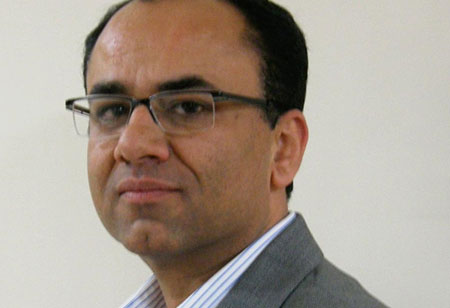Why is India Consulting Looking for Global Talent?
By Punit Vanvaria, CEO, Corner Office Advisors

Punit Vanvaria, CEO, Corner Office Advisors
Corner Office Advisors 2014-15 report on the Consulting Industry estimated a 25 percent growth; with an outlook of more than 30 percent CAGR over the next two years. While, this year’s report is yet to be published, initial research aligns the growth to the forecast.However, customer expectations are changing and so is the scale and complexities of projects. This is influencing what leadership skills are required.Identifying new talent markets using Global Talent Outreach is the new mantra at consulting firms in India.
What Customers Want?
Customers are no longer looking for strategy alone. They look well beyond into Execution Excellence. Customers are demanding that consultants take the next step. They want a working strategy, a proof-of-concept (POC). Strategy and consulting firms have the strategic thinking; and now need the execution capability to take a strategy to prototype stage. Many strategy firms are setting up or expanding their capabilities with centers’ of excellence. At the same time, services companies are growing their footprint in the strategy domain. In both types of businesses, there is a need to augment leadership.
With the Modi government evangelizing India as the business destination, there is a significant increase in investments in strategic projects. Also, many sectors are seeing multi-billion dollar investments in a single project. This size and scope is unprecedented in the country. To run such mammoth projects, companies need leadership talent that brings proven skills in executing consulting engagements aligned to these projects. Most of these projects today are in infrastructure, governance and social. India is also seeing new opportunities in sectors such as banking, logistics, retail etc. There is a growing need for digital transformation in traditional industries, for even SMEs are opening up a plethora of new opportunities. However, the enormous complexity and scale of these projects suggests that in all probability such talent may not exist in India. We are seeing consulting companies target global markets for leadership hiring. As they scour Indian talent, many new skills are just not available. No one has built a smart city before, brought in bullet trains, and really tried to clean the Ganga in the scale of current needs.
Attracting the World’s Top 10 Percent Talent
So if this talent isn’t easily available in India, then where does one go hunting? The answer is looking at global pockets rich in a particular talent pool. For example, if you are looking to advise the government initiative of Smart Cities, then it is always good to hire leadership that worked with the Smart City initiatives in global cities such as Barcelona or Dubai. Many global firms are looking within their global networks to expatriate talent from other markets. But, more often, they turn to experts that can establish Global Talent Outreach initiatives. This increases the pool of talent available to them. Sustained global outreach results in attracting a significant number of top 10 percent of the world talent pool to emerging markets.
Making Global Talent Outreach Work for You
Seasoned, mature global professionals often look at emerging markets for next set of challenges in their careers. Many Indians working in global markets are also looking for significant opportunities in their homeland. It is important to work with global talent partners that can connect and attract these individuals to your firm. Most global consulting firms are demanding global searches from their executive search partners, especially when they need thought leaders in these new domains.
Understanding Challenges while Hiring Expats
From a compensation standpoint, expats and returning Indians, both are not looking at taking a cut in their dollar compensation. So, companies need to understand that they will be paying globally comparable salaries. Companies must account for right-sized compensation budgets, while building a global talent outreach program. The second challenge stems from issues mentioned in the InterNations 2015 survey. Environmental, cultural or infrastructure issues can overwhelm expatriates during their first visit. At this point, many expats decide not to pursue an India opportunity. We start addressing these issues in our first conversation with expats to allow for an easier transition.
Enabling Smooth Transitions to India
A Global Talent Outreach organization must play an important role in an expat’s transition to India. A transition to a new job and a new country requires the executives to adapt to emotional and cultural changes. Managing this transition effectively is crucial. It must help executives plan ahead and balance such a transition with the least possible disruption. But, once they settle in, expats quite enjoy their stint in India.
Current Issue
🍪 Do you like Cookies?
We use cookies to ensure you get the best experience on our website. Read more...









